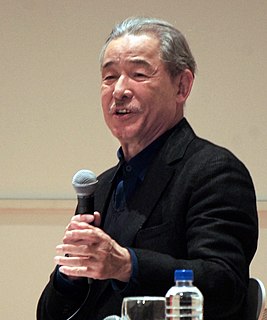A Quote by Alfred Bester
I'm not much interested in extrapolating science and technology; I merely use extrapolation as a means of putting people into new quandaries which produce colorful pressures and conflicts.
Related Quotes
How can you communicate your thoughts or demonstrate your hypotheses by conventional means when all the values and standards that you want to challenge are built into those means? Science and new technology today like to declare that they encourage 'lateral thinking,' new ways of seeing and putting data together - but all systems have an inbuilt resistance to what has not been programmed into them through the premises on which their rules are based.
Here I had tried a straightforward extrapolation of technology, and found myself precipitated over an abyss. It's a problem we face every time we consider the creation of intelligences greater than our own. When this happens, human history will have reached a kind of singularity - a place where extrapolation breaks down and new models must be applied - and the world will pass beyond our understanding.
I think the Nobel Prize helps for a number of reasons. Number one, if I can be frank, there is these people will feel by getting a Nobel Prize that I'm one of them, that it is possible to contribute on the world map of science and technology. And the other thing also which I'm hoping for is that the government in Egypt is willing and interested in promoting science and technology and this is an ideal time now to be able to do something.
I have always been interested in conducting research that yielded new methods by which to make cloth, and in developing new materials that combine craftsmanship and new technology. But the most important thing for me is to show that, ultimately, technology is not the most important tool; it is our brains, our thoughts, our hands, our bodies, which express the most essential things.



































